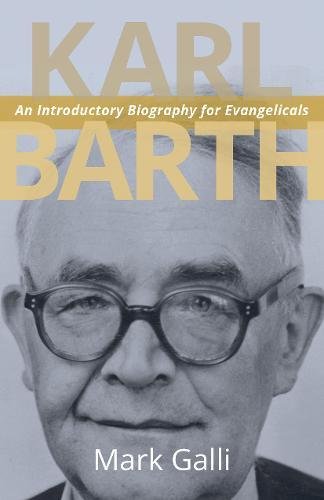Q. Where does Barth’s Reformed theology really come from if, as you say on pp. 58-59 he knew little of Calvin when he was invited to join the faculty at Gottingen (he had read at least some of Institutes at Marburg)? He certainly didn’t get it from his growing up in a pietistic family did he? And it didn’t come from his education at Marburg and elsewhere either. Was it the trauma of World War that drove him to abandon any sort of positive view of human abilities to know God, and hence a reliance entirely on a view of God that is entirely top down, and emphasizes the extreme sovereignty of God? In short, from your reading of his life— what makes Barth tick this way and what factors in his life prompted this sort of theologizing?
A. That’s a good question that I think theologians of Barth might be better prepared to answer. I know when he first plunged into deeper theological studies, he was helped immensely by reading an obscure 19th century Reformed theologian Heinrich Heppe. Between Calvin and Heppe, Barth made his way forward as a Reformed theologian. I’m guessing that his insight into the absolute distance of God from us, and the absolute necessity of God’s breaking into our world on his own gracious initiative, made him deeply sympathetic to Reformed theology, which of course majors in the sovereignty of God.
Q. Of late I’ve been transcribing and publishing the remarkable sermons of my mentor, C.K. Barrett in a series called Luminescence. When I got to the bottom of p. 59 I nearly jumped out of my chair, because Gruenewald’s crucifixion painting with John the Baptist pointing to Christ is referred to over and over again by Barrett in these sermons as what preaching should be about— pointing to Christ. The other thing to say about Barrett is that he was deeply influence by Barth’s Romerbrief, to such a degree that it shows up in his own Romans commentary, where he says that it was the most influential source he used. But of course, Barrett was a Methodist, not a Reformed theologian. What is it about Barth that led to his having such an impact on all sorts of Evangelical scholars and preachers, including non-Reformed ones like Barrett?
A. I believe it’s because Barth, especially in his Church Dogmatics, does such fine theological exegesis. You don’t always have to buy into his Reformed slant to recognize he is a genius when it comes to understanding and communicating the message of Scripture. Christians of every stripe can learn something about reading Scripture from the Reformed Barth, I believe, not because I’m hoping they’ll become Reformed, but because I think it will help all of us become more biblical.
Q. One of the more fascinating chapters in the book is the chapter on his beginnings of being a teacher where he himself had to quickly learned Reformed theology and Calvin in order to teach it. It is easy enough to see how this theology suited a strong critique of old liberal theology ala von Harnack and Schliermacher, but my question is simple. How exactly did someone who grew up in a loving pietistic family become so skeptical and even cynical about human emotions and religious experiences? I really don’t understand that part of his biography. It’s one thing to oppose religious experiential excess, or basing one’s theology in ‘a feeling of absolute dependency on God’ rather than on God’s Word, God’s self-revelation? It’s another thing to simply reject that whole aspect of Christian life and thought.
A. I believe it has to do with what I said earlier—a combination of his respect of Feuerbach’s argument against the existence of God along with the way German liberal theologians could not separate their patriotism from their devotion. Experiential religion is not merely personally dangerous (that is, tempting one into strange behavior and sects) but socially and even nationally dangerous. He believed it was one of the main reasons the German Christians were attracted to Adolf Hitler. They were deeply moved by Hitler’s oratory and ideas, and they equated those with the movement of God. That was, to say the least, a disastrous move at an unprecedented scale.












